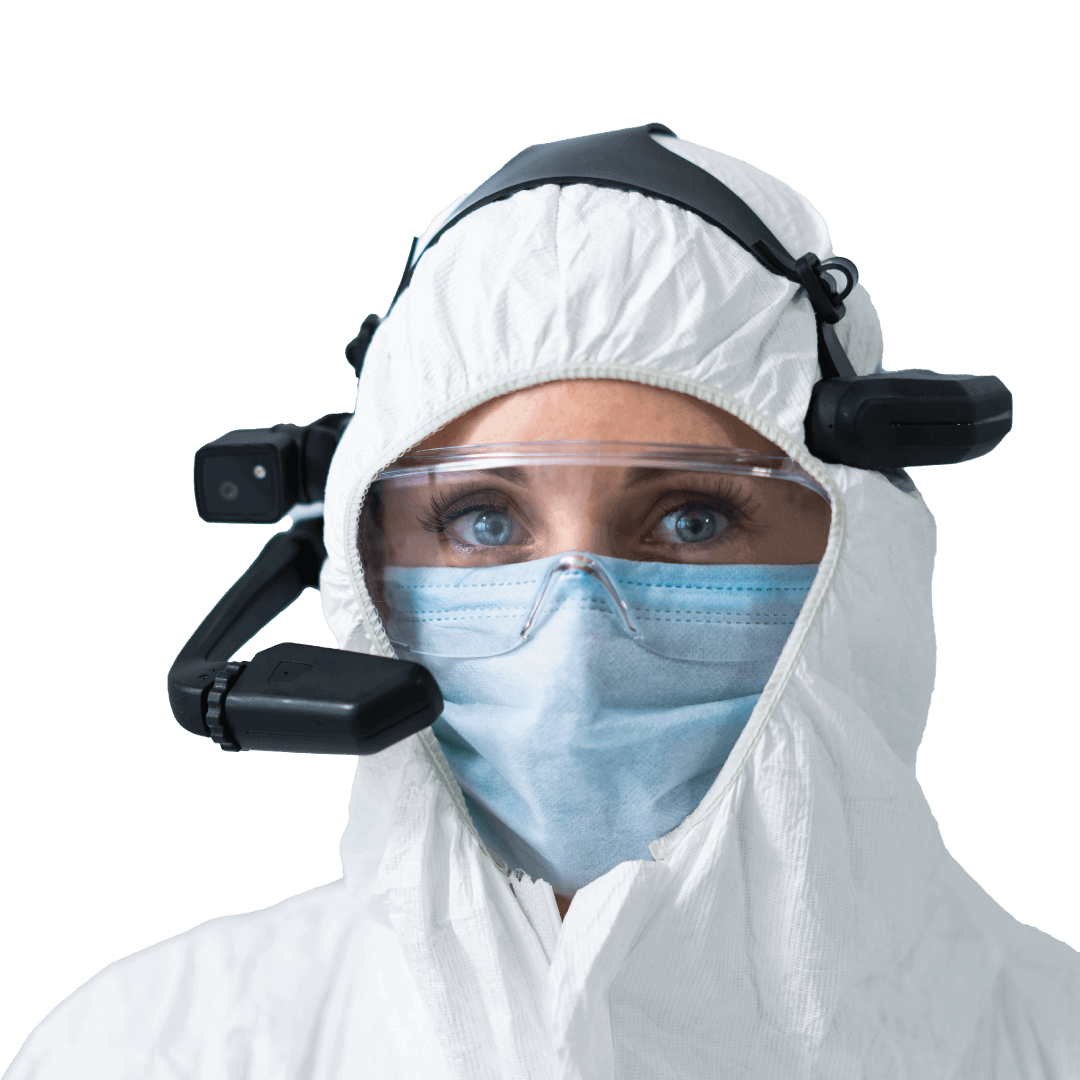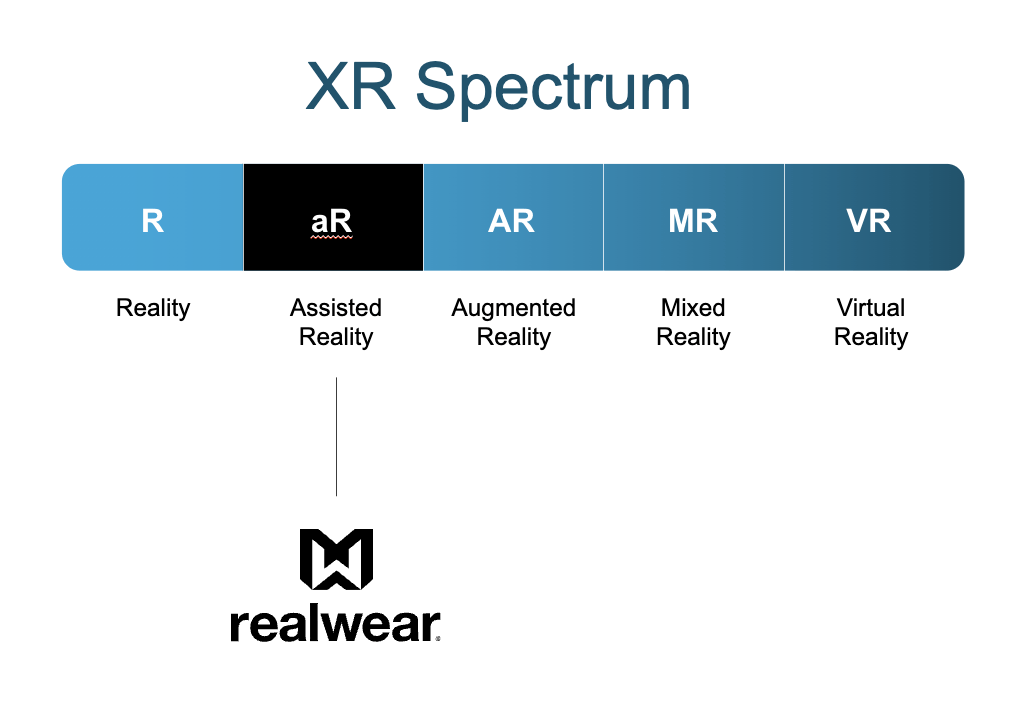
Introduction

Importance of smart glasses in healthcare:
Smart glasses are an important technology for the healthcare industry, as they allow healthcare professionals to access critical information and perform tasks more efficiently while improving patient care. The hands-free operation of smart glasses allows healthcare professionals to work more efficiently, reducing the need for manual data entry and improving communication between team members. This can help improve patient outcomes, reduce the risk of errors, and ultimately improve patients' quality of care.
Smart glasses also have the potential to transform the way healthcare professionals work, allowing them to perform tasks that were previously not possible, such as accessing real-time patient data during surgeries or remote consultations. This technology can also help to reduce the burden on healthcare services by enabling remote consultations, reducing the need for in-person appointments, and increasing the capacity of healthcare services.
Purpose of the blog post:
The purpose of this blog post is to explore the benefits of smart glasses in healthcare and their use in the NHS. We will examine the key features of smart glasses, discuss their use cases, and highlight the challenges and limitations that need to be addressed. The post aims to provide healthcare professionals with a comprehensive overview of smart glasses technology, its potential applications, and the ways in which it can improve patient care and the efficiency of healthcare services. By the end of this post, readers should better understand how smart glasses work, their benefits and limitations, and the potential of this technology to transform healthcare.
Benefits of Smart Glasses in Healthcare:
Smart glasses offer numerous benefits to the healthcare industry, including improved efficiency, better patient outcomes, and enhanced collaboration among healthcare professionals. Here are some of the key benefits of smart glasses in healthcare:
- Hands-free operation: Smart glasses allow healthcare professionals to work hands-free, which can be particularly useful during surgeries or other procedures. This can help reduce the risk of errors and improve patient safety.
- Real-time information: Smart glasses provide healthcare professionals with real-time information, such as patient data, vital signs, and medication information, which can improve the accuracy and speed of diagnosis and treatment.
- Remote consultations: Smart glasses can be used for remote consultations, which can save time and reduce the need for in-person appointments. This is particularly useful for patients in remote or rural areas who may have difficulty accessing healthcare services.
- Improved collaboration: Smart glasses allow healthcare professionals to collaborate more effectively, by enabling real-time sharing of information, and remote consultation between specialists.
Examples of smart glasses that are currently being used in healthcare, RealWear alongside Microsoft teams and TeamViewer.
RealWear's Navigator 520 offer a range of features that make them ideal for use in healthcare, including a high-resolution display, voice control, and the ability to stream live video. Using platforms such as TeamViewer enable healthcare use cases, such as telemedicine and remote consultations to work seamlessly.
Use Cases for Smart Glasses in the NHS
The NHS is constantly seeking innovative ways to improve patient care and reduce costs. Smart glasses offer a range of potential use cases that could help achieve these goals. Here are some examples of how smart glasses could be used in the NHS:
- Telemedicine: Smart glasses could be used to provide remote consultations for patients who are unable to attend appointments in person. This could be particularly useful for patients who live in rural or remote areas.
- Medical education: Smart glasses could be used to provide medical students with an immersive and interactive learning experience, allowing them to observe surgeries or procedures from the surgeon's perspective.
- Patient monitoring: Smart glasses could be used to monitor patients' vital signs and other data in real time, allowing healthcare professionals to respond quickly to changes in the patient's condition.
- Surgical procedures: Smart glasses could be used in surgical procedures to provide surgeons with real-time information such as vital signs, patient data, and x-rays, without having to look away from the surgical site.
- Home care: Smart glasses could be used to support home care services, allowing healthcare professionals to remotely monitor and support patients in their homes.
Overall, the use of smart glasses in the NHS could help improve patient care, increase efficiency, and reduce costs. As the technology continues to develop, we can expect to see even more innovative use cases for smart glasses in the healthcare industry.
Key Features of Smart Glasses for Healthcare:
When it comes to smart glasses for healthcare, there are several key features that make them particularly well-suited for use in this industry. Here are some of the most important features to look for in smart glasses designed for healthcare:
- Lightweight and comfortable design: Smart glasses designed for healthcare use should be lightweight and comfortable to wear for extended periods of time, particularly during surgical procedures or other long-duration tasks.
- Advanced voice recognition technology: Since healthcare professionals often need to work hands-free, smart glasses should include advanced voice recognition technology that allows for easy and accurate voice commands and dictation.
- Long battery life and quick charging: Smart glasses for healthcare should have long battery life and quick charging capabilities to reduce downtime and ensure that they are always ready for use.
- High-resolution display: Smart glasses should have a high-resolution display that is easy to read and provides clear images and video, particularly when used for surgical procedures or other tasks that require high levels of precision.
These key features are essential for ensuring that smart glasses are an effective and useful tool for healthcare professionals. By providing a comfortable and intuitive interface, high-quality imaging, and hands-free operation, smart glasses can help healthcare professionals work more efficiently and effectively, improving patient outcomes and reducing costs.
Future of Smart Glasses in Healthcare:
Smart glasses are a relatively new technology in the healthcare industry, but they are already showing great promise in improving patient care and increasing efficiency. Here are some of the key trends and developments to watch for in the future of smart glasses in healthcare:
- Growing adoption and use cases: As more healthcare organisations adopt smart glasses, we can expect to see an increase in the number and variety of use cases. From telemedicine and patient monitoring to surgical procedures and medical education, smart glasses offer a wide range of potential benefits for the healthcare industry.
- Advancements in technology: As technology continues to advance, we can expect to see even more advanced features in smart glasses designed for healthcare. For example, augmented reality (AR) and virtual reality (VR) could be used to provide even more immersive and interactive experiences for medical education and training.
- Potential to transform healthcare as we know it: Ultimately, smart glasses have the potential to transform healthcare as we know it. By providing healthcare professionals with real-time access to vital patient data, high-quality imaging, and intuitive hands-free operation, smart glasses can help improve patient outcomes and reduce costs. As technology continues to evolve, we can expect to see even more innovative use cases for smart glasses in the healthcare industry.
Conclusion:
Smart glasses, such as those offered by RealWear, have the potential to revolutionise the healthcare industry by providing healthcare professionals with real-time access to critical patient data, high-quality imaging, and hands-free operation. From telemedicine and patient monitoring to surgical procedures and medical education, smart glasses offer a wide range of potential benefits for the healthcare industry.
In this blog post, we've explored the importance of smart glasses in healthcare, their benefits, and several use cases that demonstrate their potential to transform the industry. We've also discussed the key features that make smart glasses well-suited for healthcare, as well as the future trends and developments to watch for in this rapidly-evolving field.
As healthcare professionals continue to explore the potential of smart glasses, we encourage them to consider the benefits of RealWear's Navigator 520 headset. With their rugged design, advanced voice recognition, and high-resolution display, these smart glasses are specifically designed for use in challenging environments, such as operating rooms or emergency response situations.
The future of smart glasses in healthcare looks bright, and we believe that RealWear's platform will play an important role in transforming the industry. We encourage healthcare professionals to explore this exciting technology and discover new ways to improve patient care and increase efficiency in their work.
Looking to learn more and maybe get a demo of the solution? Please follow the link below.

